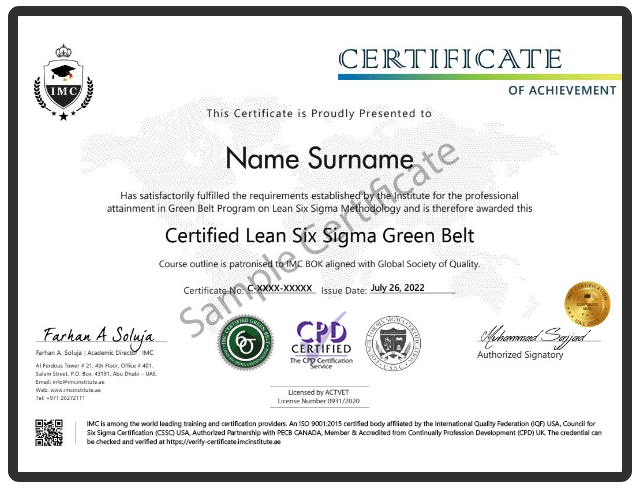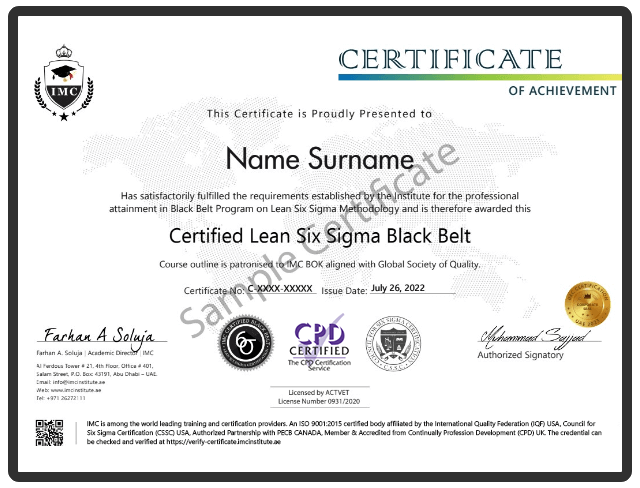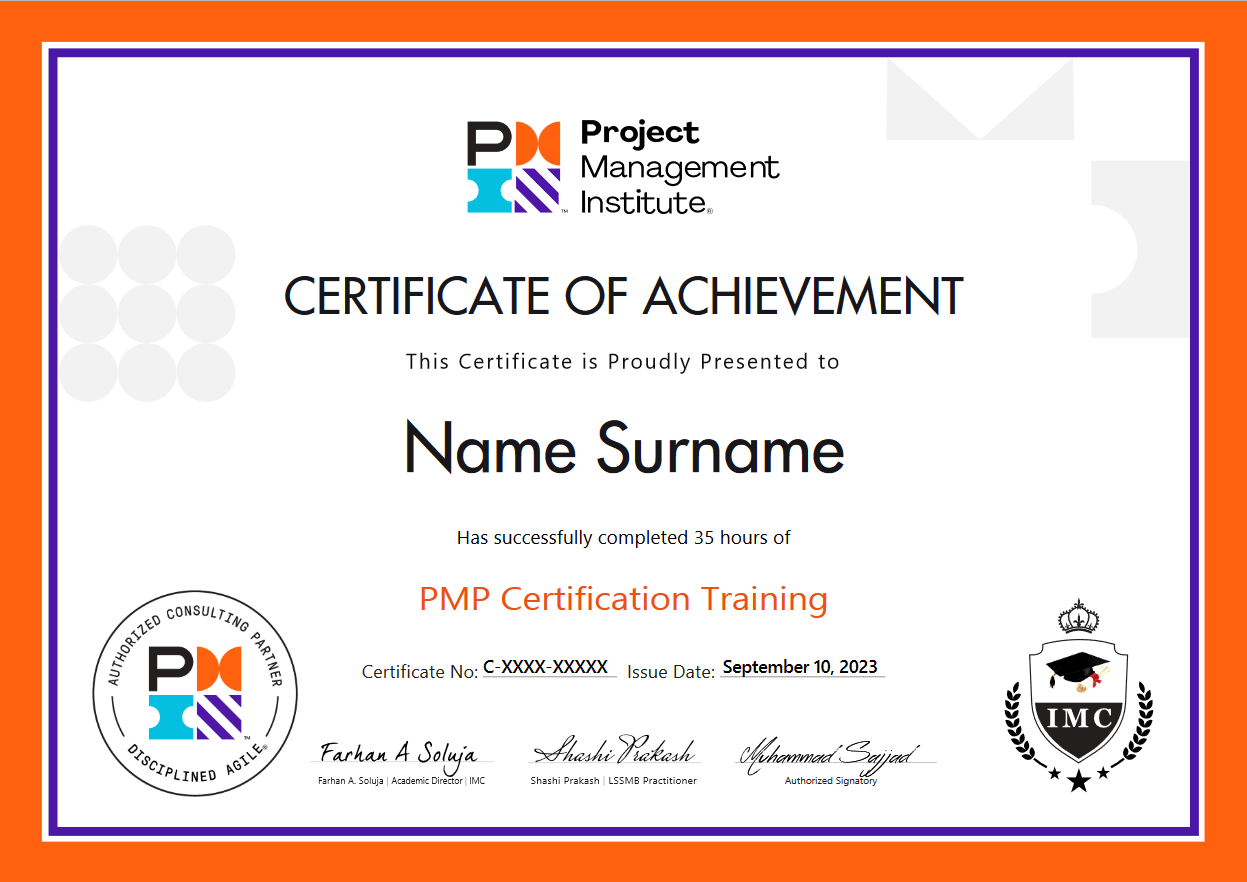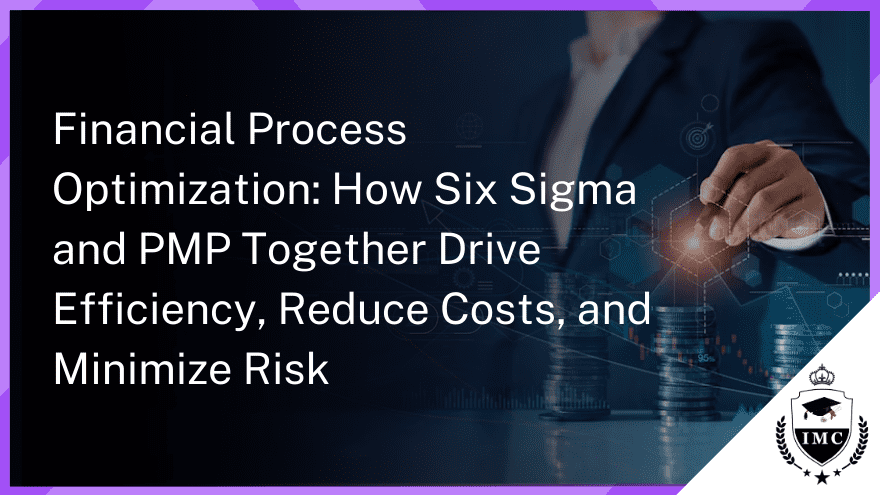In a world demanding ever-increasing efficiency and razor-sharp financial control, organizations are actively seeking methods to optimize their financial processes. This blog post dives into the powerful synergy between two methodologies - Six Sigma and Project Management Professional (PMP) certification. We'll explore how these approaches, when wielded together, become a winning combination for streamlining your financial operations. Six Sigma, with its data-driven approach to eliminating defects, excels at pinpointing and resolving issues within existing processes. However, it can sometimes lack the structured project management framework for seamless implementation. This is where PMP steps in, providing the essential tools and roadmap to manage Six Sigma projects effectively.
What is Six Sigma?
Six Sigma is a data-driven, quality improvement methodology that uses a set of statistical tools and techniques to identify and eliminate defects in any process. It focuses on achieving near-perfect quality by minimizing variability and reducing waste. Six Sigma follows a structured DMAIC (Define, Measure, Analyze, Improve, Control) cycle to identify areas for improvement, collect data, analyze root causes, implement solutions, and monitor the effectiveness of those solutions.
What is PMP?
The Project Management Professional (PMP) certification validates a professional's ability to initiate, plan, execute, monitor, and control projects effectively. PMP credential holders possess a comprehensive understanding of project management principles, methodologies, and best practices. They can effectively manage resources, timelines, risks, and budgets to ensure projects are delivered on time, within budget, and to scope.
Why Six Sigma and PMP Together?
While Six Sigma excels at identifying and eliminating defects in existing processes, it can lack the structured approach to project management. This is where PMP comes in. PMP provides the framework and tools to manage Six Sigma projects effectively, ensuring efficient implementation and maximizing the return on investment.
Here's how this winning combination benefits financial process optimization:
Structured Approach: PMP provides a structured framework for managing Six Sigma projects, ensuring all phases are completed efficiently and effectively. This minimizes the risk of project delays or scope creep.
Data-Driven Decision Making: Six Sigma's data-driven approach allows for a clear understanding of financial processes, pinpointing areas for improvement with statistical evidence.
Reduced Costs and Errors: By identifying and eliminating defects in financial processes, Six Sigma helps organizations minimize costs associated with rework, errors, and waste.
Improved Efficiency: Streamlined financial processes lead to faster turnaround times, improved accuracy, and a more efficient allocation of resources.
Enhanced Risk Management: PMP's risk management tools help identify and mitigate potential risks associated with process improvement initiatives.
Sustainable Change: The combined methodologies ensure not only successful implementation but also the long-term sustainability of the improved processes.
Optimizing Your Financial Future with IMC Institute
IMC Institute offers a unique opportunity to acquire both Six Sigma and PMP certifications, equipping you with the expertise to become a true champion of financial process optimization.
Our comprehensive Six Sigma programs will teach you the DMAIC methodology and equip you with the statistical tools needed to identify and eliminate defects in your financial processes. Additionally, our PMP certification training will provide you with the project management skills necessary to effectively plan, execute, and monitor your process improvement initiatives
Six Sigma program within an organization.
Six Sigma certifications are valuable across various sectors, including manufacturing, engineering, healthcare, supply chain management, and financial services.
Certification
Six Sigma Green Belt Certification:

On successful completion of the course and course requisites, the candidate will receive Internationally recognized Six Sigma Green Belt Certification.
Six Sigma Black Belt Certification:
On successful completion of the course and course requisites, the candidate will receive Internationally recognized Lean Six Sigma Black Belt Certification.

Certification:
On successful completion of the course and course requisites, the candidate will receive the certificate of PMP Certification Training.

Invest in Your Future: Enroll Today
By mastering both Six Sigma and PMP, you'll be well-positioned to drive significant improvements in your organization's financial processes. Contact IMC Institute today to learn more about our Six Sigma and PMP certification programs and take the first step towards a more efficient and profitable future.
Summary:
This blog post has examined the dynamic duo of Six Sigma and PMP certification, highlighting their combined power to optimize financial processes. We explored how Six Sigma's data-driven approach, coupled with PMP's structured project management framework, leads to significant benefits such as reduced costs, improved efficiency, and enhanced risk management.
If you're looking to become a champion of financial process optimization, look no further than IMC Institute. We offer comprehensive programs in both Six Sigma and PMP certification, equipping you with the expertise to drive significant improvements within your organization. Enroll today and invest in a more efficient and profitable future.






